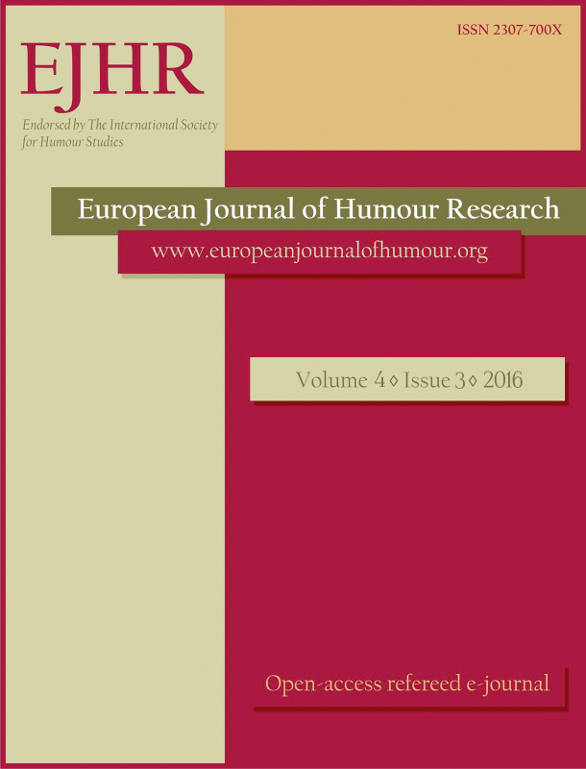Commentary piece
Commentary piece
The enigma of solitary laughter
Author(s): Mark WeeksSubject(s): Anthropology, Social Sciences, Language and Literature Studies, Psychology, Theoretical Linguistics, Applied Linguistics, Sociology, Pragmatics, Sociolinguistics, Descriptive linguistics, Cultural Anthropology / Ethnology, Psychology of Self, Behaviorism, Applied Sociology, Social Theory
Published by: Krakowskie Towarzystwo Popularyzowania Wiedzy o Komunikacji Językowej Tertium
Keywords: laughter; solitude; humour; theory;
Summary/Abstract: Very little has been published on the subject of solitary laughter. Yet it appears quite possible that it is experienced by a large majority of people. A pilot study I have recently undertaken involving participants of numerous nationalities, as well as searches through literature and across the Internet, suggest that solitary laughter, while not as common as social instances of laughing, is a widespread human behaviour. It is even accorded special value by some. Seeking to encourage further research into the subject, this article discusses research and examines the forces that have militated against a more thorough research engagement with solitary laughter. It argues that a primary factor may be a pervasive assumption among influential scholars that laughter is an essentially social phenomenon and that laughing in solitude may be explained away as “vicarious” or “pseudo” socialising. Doubt is cast here upon that assumption. It is argued that while the reductionism at work in the extremely broad application of a social hypothesis may be theoretically attractive, it belies the diverse, evolving operations of both laughter and humour; this may be unnecessarily, if unwittingly, restricting the field of enquiry. Solitary laughter is a significant, complex behaviour and worthy of attention in its own right.
Journal: The European Journal of Humour Research
- Issue Year: 4/2016
- Issue No: 3
- Page Range: 76-87
- Page Count: 12
- Language: English

